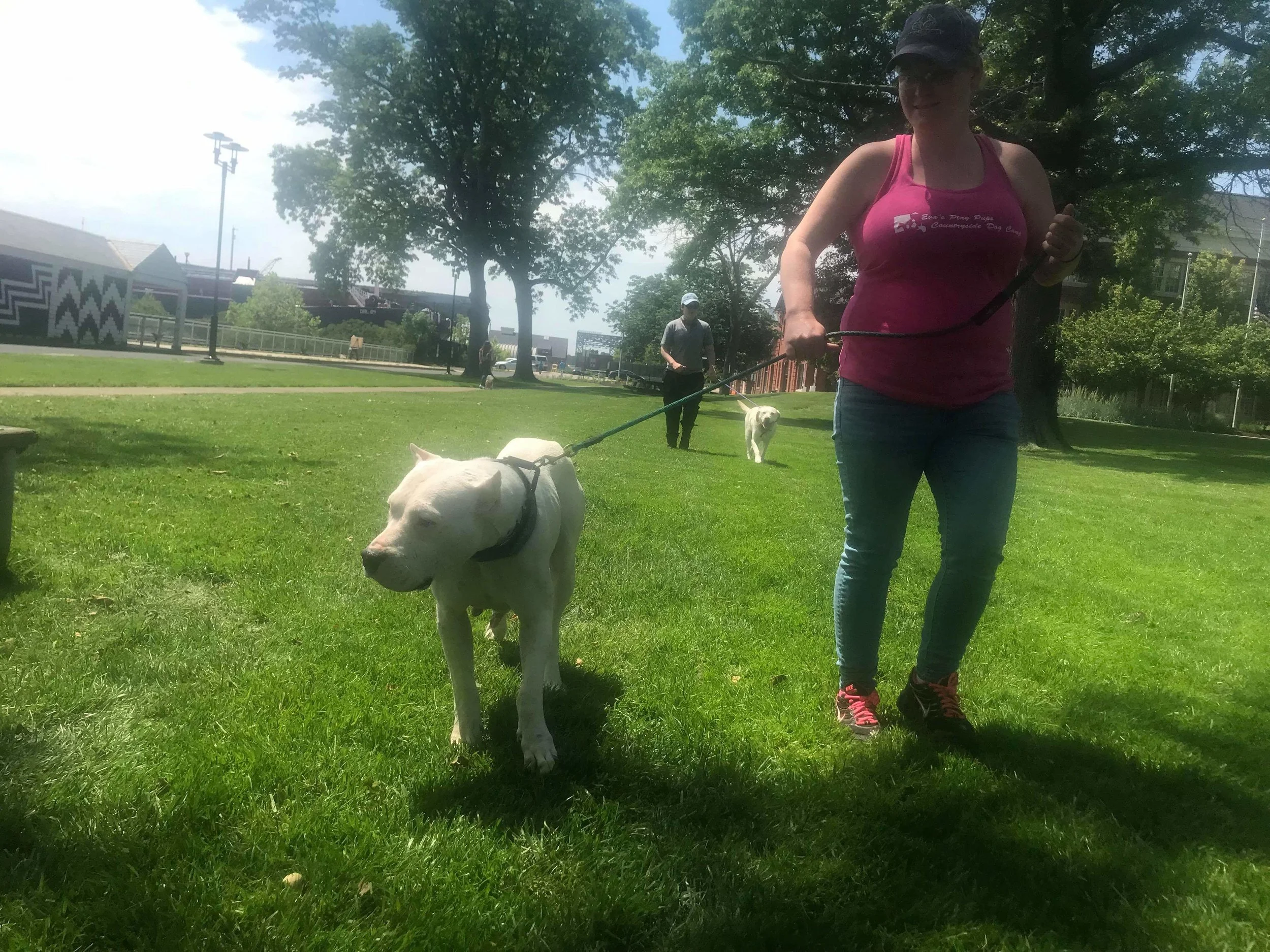We can't say it enough - continuing education for our staff is so very important! We were happy to share some things that we learned during our Canine Health Seminar in our last blog article. This week we are excited to say that our Canine Counselors once again had the to improve their skill set by learning about fearful dogs and their behaviors with Krista Milito, founder of The Philly Pack.
The Philly Pack is a dog training organization located in Philadelphia, PA whose mission is to “help dog owners become calm, confident pack leaders and find balance and harmony.” Krista Milito has spent the last 15 years working with and studying fearful dogs. However, she has honed her skills and understanding over the last 4 years while studying with her mentor Nelson Hodges of the Canine-Human Relationship Institute. We are proud to say that a few of our team members also had the privilege of learning from Nelson Hodges at one of his seminars about locating lost dogs.
As you can imagine, our Canine Camp Counselors interact with fearful dogs on a regular basis. Some dogs can be scared during their first visit to camp but we also have regular campers who are on the shy side. It is our counselors’ responsibility to become advocates for these dogs and help them adjust to camp life. Krista’s seminar gave us a wealth of useful information and insight as to how approach these fearful dogs and work safely with them.
The seminar began with an interactive exercise. One person crouched down on the ground and another person stood about 10 feet across from them. The person standing walked toward the crouching person in 4 different ways.
First, the person walked straight toward the other and stopped right in front of them. The second time, as they approached, the person skewed their step so that they walked past the crouched person. The third time, they skewed their step again but now stopped and stood beside the crouching person. On the final pass, they did the same but now stopped and crouched beside the other person.
At each of these steps, the crouching person was asked to write down one word that best described how they felt as the person was walking toward them. At first, reactions were unpleasant. Some people wrote that they felt small or intimidated by the person walking directly at them. However, as the stages progressed, those who were crouching felt increasingly comfortable with the other person. By the final stage, people stated that they felt respected and equal with the person walking towards them.
The purpose of this exercise was to help us understand how dogs feel when we approach them - especially when they are on leash or in a crate and do not have the option to move away from us. It helped our staff members to become more aware of how we approach dogs and understand how they may feel about us if we are unfamiliar to them.
Krista explained that fearful dogs use survival instincts and will protect themselves at any cost. They will exhibit one of four reactions: Fight, Flight, Avoid, or Accept. Some dogs avoid looking in the direction of people who they aren’t fully comfortable with. This is a better reaction than fight or flight, but acceptance is the goal reaction that we should always work towards. Reaching the acceptance response only comes with time and requires patience and working with the dog at their pace.
Krista also taught our team members some leash techniques to coax hesitant dogs without pulling them and increasing their fear. She instructed us to start by holding the leash with the thumb and pointer finger. As the dog began to resist, we were to grab the leash with the rest of the hand and tug intermittently until the dog started following in the direction that we wanted. Krista also taught us that it is important to reward the dog with a “yes” or “good” when he or she listened to our commands.
When working with fearful dogs, Krista told us to always remember the acronym “LIMA” which stands for “Least Invasive Minimally Aversive.” This means that you should work towards making a dog feel comfortable with you without crossing the dog’s boundaries and making the dog even more uncomfortable than they already are. It is important to focus on the dog’s needs and listen to their behaviors in order to determine when you can start progressing further with them. This is the best way to gain a dog’s trust.
We are all so grateful to Krista for sharing her knowledge with us. Our team is always eager to learn so that we can make our campers as comfortable as possible and help them experience how much fun Countryside Camp can be!





